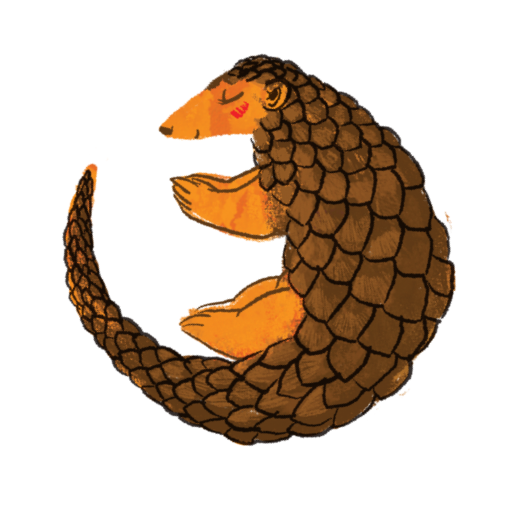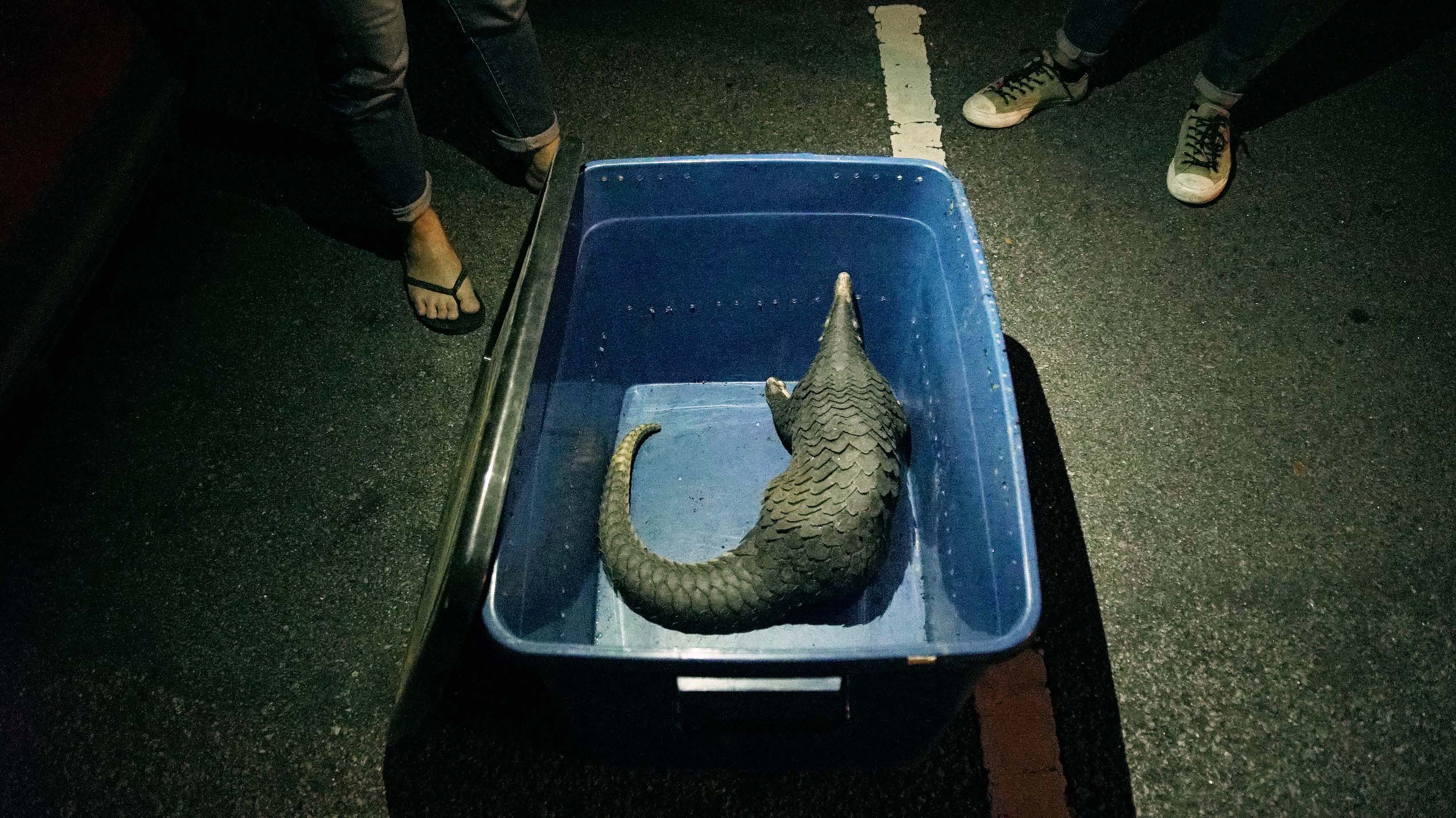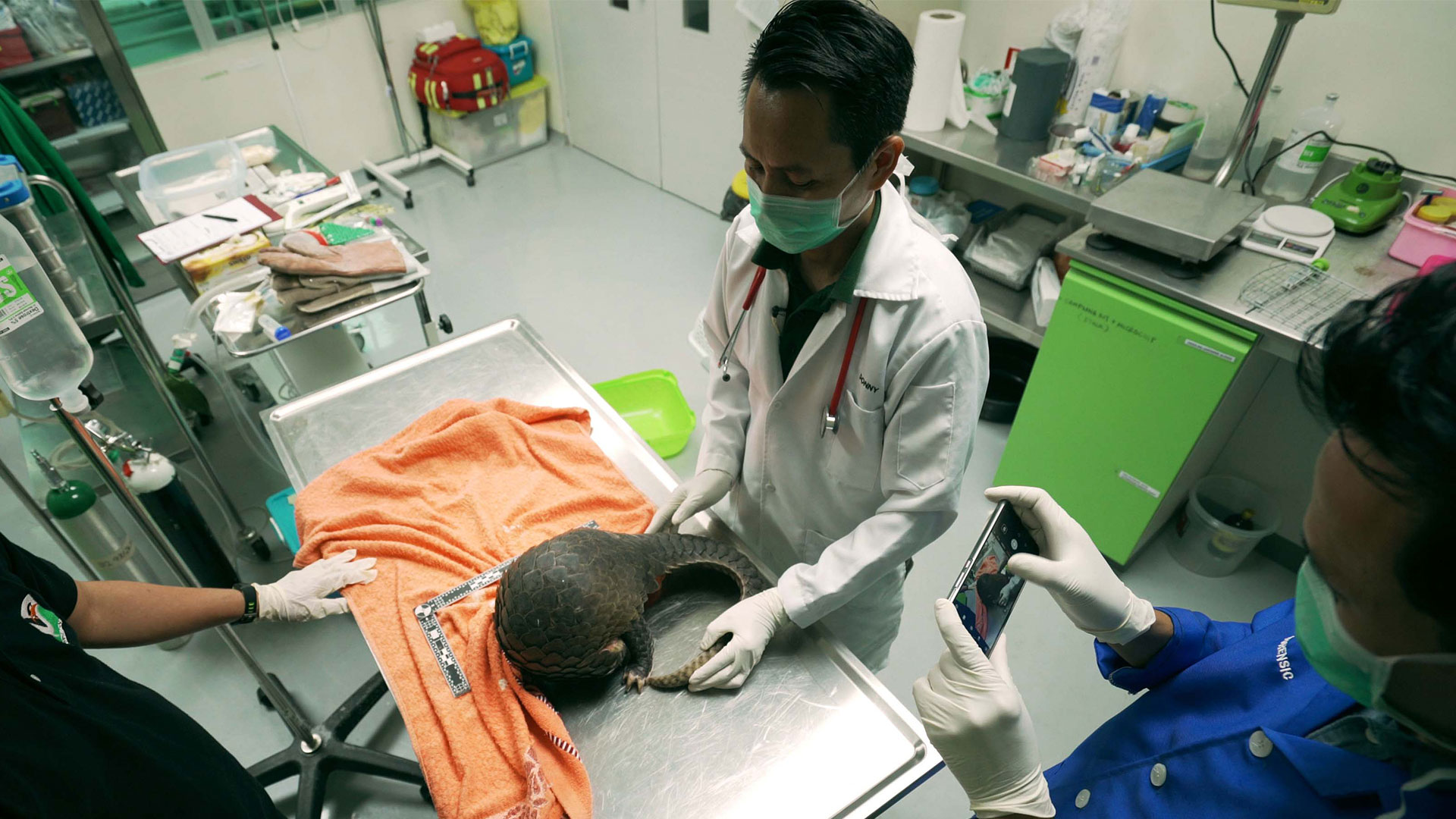


t is difficult to tell the story of perhaps the most infamous wildlife trader in Malaysia, because we have never seen him before. Neither have his customers. Yet he has become something of a legend, known among conservationists and enforcement authorities as the one who just can’t be caught.
His stock in trade – exotic pets such as dusky leaf monkeys and Asian leopard cats, usually destined for the suburban homes and Instagram accounts of pet owners.
“These online sellers act like middlemen. From the poachers, they have agents who send it directly to the customers.” - Dr. Pazil Patah, Perhilitan Director of Enforcement
But this trader is able to be both infamous and elusive, simply by being completely digital.
Most know him only by his handle ‘Kejora Pets’. He advertises his animals on social media, complete with photos, firesale-style copy, and a phone number through which he takes orders on messaging apps. He receives payment via online bank transactions, and arranges for delivery via third parties. He never physically handles the animals, ever.
Watch R.AGE’s undercover investigation into Malaysia’s online wildlife trade
None of this is secret. Customers of Kejora Pets often send him unboxing videos and testimonials after receiving their pets, which he shares. Photos and videos where they pose with thumbs up next to their new pet, thanking Kejora for his excellent customer service.
“These online sellers act like middlemen,” explains Perhilitan Director of Enforcement Dr. Pazil Patah. “From the poachers, they have agents who send it directly to the customers.”
“So even though he advertises it, posts photos of it on social media and all that, the animals are never in his possession. Under current laws, the crime is for possession of wildlife.”
That means that he has committed no crime, even though the animals he sells are often protected species. Which explains the impunity – he once brazenly taunted his critics on a social media post, saying he has protection from the palace, daring them to catch him if they can. He even tagged Perhilitan’s official account in the post.
Every so often, an outcry against him breaks on social media, and he shuts down his account, only to resurface later with a slightly different handle.
He is one of many traders on a wildlife marketplace made up of secret social media groups and channels, as accessible as the internet. Like Amazon for wildlife.
“Countries like Indonesia, Thailand and Vietnam have huge markets where wild animals are sold openly,” says Elizabeth John, senior communications officer of wildlife trade monitoring group Traffic. “But in Malaysia, the internet is the marketplace.”
Traffic first started monitoring the online wildlife trade in Malaysia in 2014. Back then, they monitored only 14 Facebook groups, and found over 68,000 active members actively trading in wildlife. Since then, the trade has exploded, forming a marketplace that is unique to Malaysia.
“The predominant demand in Malaysia is for cute, young, live wild animals for pets. There is some trade in animal parts for jewellery and accessories, but the larger part of the trade that’s characteristic to the Malaysian market, is for live, wild pets.”
In July 2019, it was reported that a number of social media influencers, some with millions of followers, have been displaying photos of wildlife being kept as household pets. These posts rack up tens of thousands of views, and according to Perhilitan could fuel demand for exotic pets.
We try ordering a pangolin from the most famous vendor in the online marketplace – Kejora Pets – with the cooperation of Perhilitan. Although there is zero demand for pangolins as pets, he offers us one within a week. We are sent photos and videos of the pangolin, along with his bank account details and instructions for payment. After payment is made, templated, step-by-step instructions follow, complete with diagrams and illustrations.
It’s this delivery method that is truly ingenious. We are instructed to wait at a bus depot for a particular express bus, arriving at a particular time. When the bus arrives, we ask the driver for our package, he hands it to us, and we leave. All of his wildlife is delivered this way.
We chat up the bus driver, who says he is paid a small delivery fee, around RM30 for “live things” like this one, that is all. He eyes us knowingly: “Is it a snake? Or a tortoise?”
We hand the pangolin over to Perhilitan immediately, and it was released in an undisclosed location.
Throughout the process, Kejora Pets existed only in text messages and voice recordings, where he comes across as a clever young man, assured and in control.
All these exchanges have been saved on file, including multiple sale offers and bank account details with his full name. However, we have yet to catch him in possession.
“One of the solutions is probably to change the way the law is worded,” says John. According to Perhilitan, changes are afoot, with new laws set to be tabled this year that empower enforcement action against online sellers.
“However, the most important thing is for people to stop buying,” continues John. “There’s a great deal that is inhumane about how young wild animals are taken away from their family units, transported in little boxes or cages, and going straight to homes.”
“People often say they buy these animals because ‘I love it and want to care for it’... Is that love?”
We arranged another transaction with Kejora, this time inching closer to his supplier, and were about to arrange one final face-to-face transaction that would have led to an arrest.
However, a wave of complaints emerged on social media against Kejora, and he goes quiet. He shut down his Telegram account, where he is most active, and vanishes from the marketplace.
What still remains are photos of wildlife, sometimes dressed up in baby chic by their owners, sitting comfortably among endlessly scrolling photos of exotic travel destinations and brunches.
By this you know that Kejora will be back.

It is difficult to tell the story of perhaps the most infamous wildlife trader in Malaysia, because we have never seen him before. Neither have his customers. Yet he has become something of a legend, known among conservationists and enforcement authorities as the one who just can’t be caught.
His stock in trade – exotic pets such as dusky leaf monkeys and Asian leopard cats, usually destined for the suburban homes and Instagram accounts of pet owners.
But this trader is able to be both infamous and elusive, simply by being completely digital.
Most know him only by his handle ‘Kejora Pets’. He advertises his animals on social media, complete with photos, firesale-style copy, and a phone number through which he takes orders on messaging apps. He receives payment via online bank transactions, and arranges for delivery via third parties. He never physically handles the animals, ever.
Watch R.AGE’s undercover investigation into Malaysia’s online wildlife trade
None of this is secret. Customers of Kejora Pets often send him unboxing videos and testimonials after receiving their pets, which he shares. Photos and videos where they pose with thumbs up next to their new pet, thanking Kejora for his excellent customer service.
“These online sellers act like middlemen,” explains Perhilitan Director of Enforcement Dr. Pazil Patah. “From the poachers, they have agents who send it directly to the customers.”
“So even though he advertises it, posts photos of it on social media and all that, the animals are never in his possession. Under current laws, the crime is for possession of wildlife.”
That means that he has committed no crime, even though the animals he sells are often protected species. Which explains the impunity -- he once brazenly taunted his critics on a social media post, saying he has protection from the palace, daring them to catch him if they can. He even tagged Perhilitan’s official account in the post.
Every so often, an outcry against him breaks on social media, and he shuts down his account, only to resurface later with a slightly different handle.
He is one of many traders on a wildlife marketplace made up of secret social media groups and channels, as accessible as the internet. Like Amazon for wildlife.
“Countries like Indonesia, Thailand and Vietnam have huge markets where wild animals are sold openly,” says Elizabeth John, senior communications officer of wildlife trade monitoring group Traffic. “But in Malaysia, the internet is the marketplace.”
Traffic first started monitoring the online wildlife trade in Malaysia in 2014. Back then, they monitored only 14 Facebook groups, and found over 68,000 active members actively trading in wildlife. Since then, the trade has exploded, forming a marketplace that is unique to Malaysia.
“The predominant demand in Malaysia is for cute, young, live wild animals for pets. There is some trade in animal parts for jewellery and accessories, but the larger part of the trade that’s characteristic to the Malaysian market, is for live, wild pets.”
In July 2019, it was reported that a number of social media influencers, some with millions of followers, have been displaying photos of wildlife being kept as household pets. These posts rack up tens of thousands of views, and according to Perhilitan could fuel demand for exotic pets.
We try ordering a pangolin from the most famous vendor in the online marketplace – Kejora Pets – with the cooperation of Perhilitan. Although there is zero demand for pangolins as pets, he offers us one within a week. We are sent photos and videos of the pangolin, along with his bank account details and instructions for payment. After payment is made, templated, step-by-step instructions follow, complete with diagrams and illustrations.

It’s this delivery method that is truly ingenious. We are instructed to wait at a bus depot for a particular express bus, arriving at a particular time. When the bus arrives, we ask the driver for our package, he hands it to us, and we leave. All of his wildlife is delivered this way.
We chat up the bus driver, who says he is paid a small delivery fee, around RM30 for “live things” like this one, that is all. He eyes us knowingly: “Is it a snake? Or a tortoise?”
We hand the pangolin over to Perhilitan immediately, and it was released in an undisclosed location.
Throughout the process, Kejora Pets existed only in text messages and voice recordings, where he comes across as a clever young man, assured and in control.
All these exchanges have been saved on file, including multiple sale offers and bank account details with his full name. However, we have yet to catch him in possession.
“One of the solutions is probably to change the way the law is worded,” says John. According to Perhilitan, changes are afoot, with new laws set to be tabled this year that empower enforcement action against online sellers.
“However, the most important thing is for people to stop buying,” continues John. “There’s a great deal that is inhumane about how young wild animals are taken away from their family units, transported in little boxes or cages, and going straight to homes.”
“People often say they buy these animals because ‘I love it and want to care for it’... Is that love?”


We arranged another transaction with Kejora, this time inching closer to his supplier, and were about to arrange one final face-to-face transaction that would have led to an arrest.
However, a wave of complaints emerged on social media against Kejora, and he goes quiet. He shut down his Telegram account, where he is most active, and vanishes from the marketplace.
What still remains are photos of wildlife, sometimes dressed up in baby chic by their owners, sitting comfortably among endlessly scrolling photos of exotic travel destinations and brunches.
By this you know that Kejora will be back.